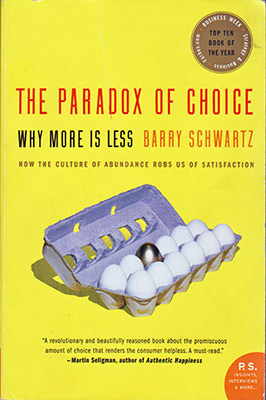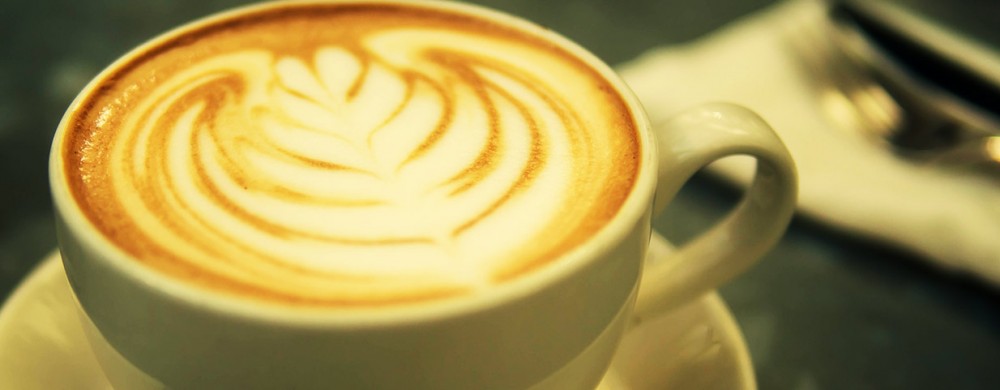Back in the old days – when times were simpler, summers were longer, and there were only three TV channels – if you wanted a cup of coffee you went to a coffee shop.
There was only one type of coffee you could order – the ‘coffee’ kind of coffee. It was a hot, dark brown liquid which you could adorn with sugar and/or cream as took your fancy. If you asked for an espresso it was because you were either showing-off in front of your friends or you were European.
Today, ordering a cup of coffee is only slightly less complex than Fermat’s Last Theorem.
Today you have Lattes, Americanos, Macchiatos, and Mochas. Cappuccinos, Frappuccinos, Al Pacinos. Extra-shot, hazelnut, 1%, 3%, soy, skinny, grande, vente, grazie mille, blah, blah, blah. Yesterday you could to be frustrated in the lack of options for your daily cup of Joe. Today, customer choice has been taken to the (other) extreme.
Capitalism, commerce, supply and demand. We’re told that choice is a good thing. As a result there are numerous choices to be made with coffee – as well as jeans, car insurance, TV channels, or toothpaste.
The choice of buying a song or movie on a physical CD or DVD, or streaming it. Or downloading it to your phone, tablet, games console, PC, or TV. There’s the choice in where and how you work. How your kids are educated, or whether you have kids at all. How you vote.
The Paradox Of Choice

Recently I’ve been re-reading a book called The Paradox of Choice by Barry Schwartz. To save you the ten bucks that it’ll cost you from Amazon, the author argues that when we as consumers are given too much choice when looking to buy an item, our brains fry and we end up choosing nothing.
For instance if a group of shoppers are asked to taste five different types of ice-cream, they’ll end up picking out their favorite. However, if those same shoppers are offered samples of TWENTY different types of ice-cream they end up confused, undecided and walk away with nothing (probably because they’re feeling sick after having eaten all that ice-cream).
Most companies feel that more customer choice always equals better. They say that “The Customer Is King“, and offering flexibility is part of that. If customers say that they want more choice, then this is what we should be giving them, right?
Not necessarily.
Too Much Choice Is No Choice At All
Adding too many options has a detrimental effect on our ability to make choices. As the number of possible options grow, the mental effort needed to work out which is the “best” choice overtakes any benefit that the extra choice had in the first place. As Barry Schwartz says in the book “choice no longer liberates, but debilitates. It might even be said to tyrannize.” Just because a little choice is seen to be a good thing, it doesn’t follow that giving more choice is better.
Too much customer choice overly complicates the buying process. On the one hand you’re happy that you have a variety of options to choose from. Conversely, all of this choice raises expectation levels. With so many choices, options, and variables the chance of regretting what you didn’t choose grows exponentially.
The result is that customers become too overwhelmed with making sure that they choose correctly that, often, they end-up choosing nothing.
Alternatively they end-up ‘selecting’ rather than ‘choosing.’ They know that they absolutely need to choose something, so they choose anything. It’s as if they were sticking a pin in a piece of paper and hoping for the best. In which case it would’ve been better not to offer them any choice at all, wouldn’t it?
Apart from bewilderment from a customer perspective, there’s another issue. Take into consideration the environmental impact that comes with manufacturing/updating a product line, a food and drink menu, or an options list that’s clearly longer than it needs to be.
With the current interest of all things green – of sustainable manufacturing, environmental responsibility, and so on – are we on the cusp of realizing that having choice for choice’s sake is actually no choice at all?

